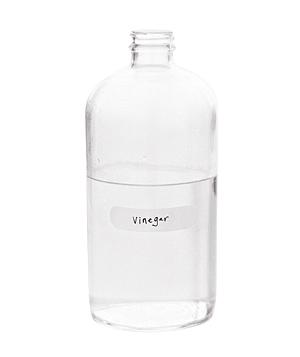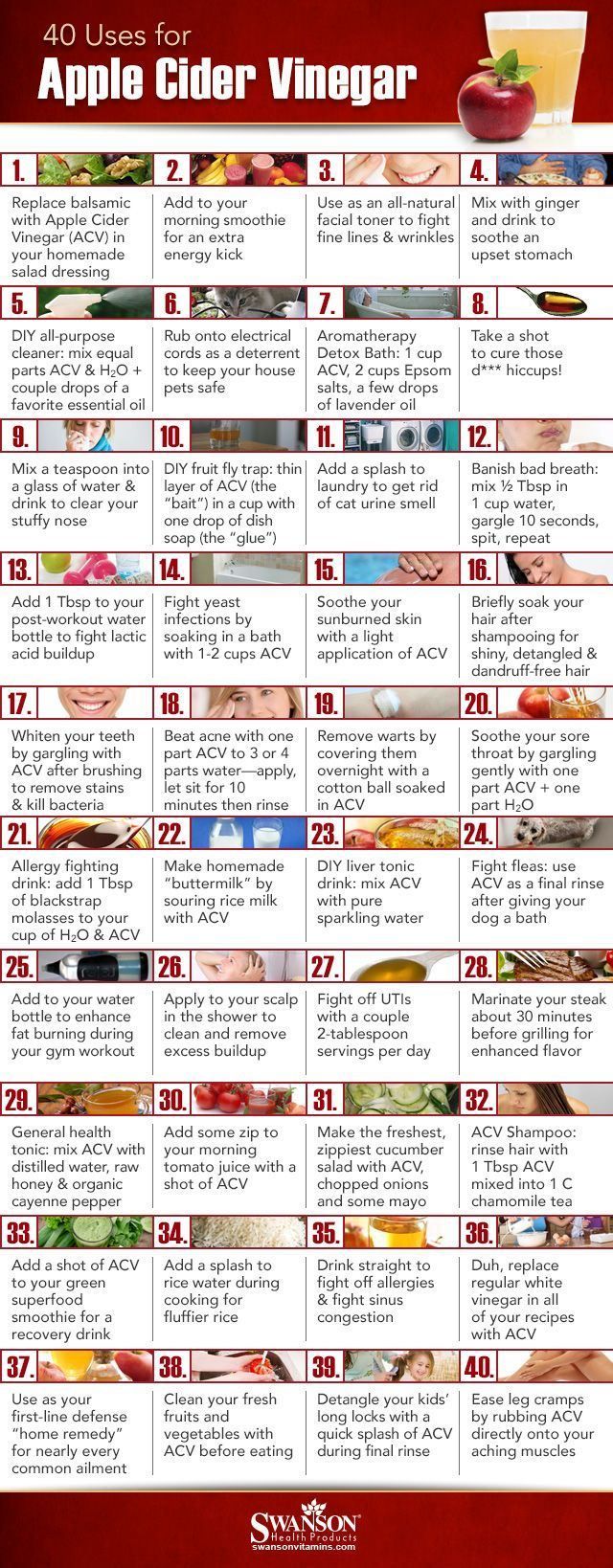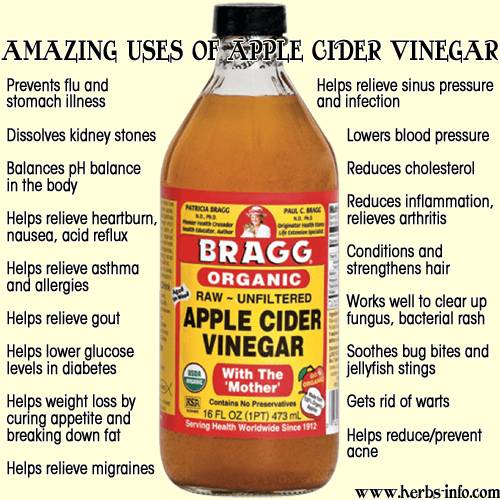40 quick and easy ways to incorporate all of the health benefits of apple cider vinegar into your life. You’ll be surprised by some of them.
Tag: Vinegar
How To Of The Day: How To Clean A Coffee Maker
Enjoy!
PureWow is the email & website dedicated to making your life easier, more interesting and of course, more beautiful. Elevate the Everyday.
Watch more videos at PureWow.com.
Cleaning With Vinegar

Price: About $1.80 for a quart at supermarkets.
Use It to Clean Your…
Coffeemaker: Pour equal parts vinegar and water into the machine’s water chamber, then switch on the brew cycle. Halfway through, turn off the coffeemaker and let the solution sit for about an hour. Turn it on again to complete the cycle, then run several cycles with clean water.
Dishwasher: To disinfect the interior of the machine, pour ½ cup vinegar into the reservoir and run an empty cycle, says Hunter. Or place a small bowl filled with vinegar on the bottom rack and run an empty cycle.
Drains: Clean drains―and the pipes they’re attached to―by pouring vinegar down them. After 30 minutes, flush with cold water.
Floors: Add ¼ cup vinegar to a bucket of warm water to clean almost any type of floor except marble (vinegar can scratch it) or wood (vinegar can strip it).
Glassware: For spotless hand-washed glasses, add 1 cup vinegar to the rinse water.
Moldy walls: Spray vinegar on the affected areas. After about 15 minutes, rinse and let dry thoroughly.
Showerheads: To combat mineral deposits, pour vinegar into a plastic grocery bag and knot the handles over the neck of the showerhead, securing with rubber bands. Let soak overnight. Rinse with water in the morning.
Steam iron: To get rid of mineral deposits, fill the iron with equal parts vinegar and water; press the steam button. Turn off, let cool, empty, and rinse.
Windows: Mix ¼ cup vinegar, 2 cups water, and a squirt of liquid Castile soap in a spray bottle. Spritz windows and wipe with a sheet of newspaper.
Amazing Uses Of Apple Cider Vinegar
Apple cider vinegar has been reported to heal many conditions – from minor ailments to serious illness. Some people swear by it. For example, apple cider vinegar is used across the world as a natural/alternative treatment for allergies, and is thought to reduce the risk of cancer.
Vinegar has been in use since ancient times – as a health remedy, cleaning agent and for many other purposes from household to science. Hippocrates (460-377 BC), the revered ancient father of medicine after whom the Hippocratic Oath was named, prescribed it for curing pleurisy, fever, ulcers, and constipation. [1] It was utilized throughout history in other societies as well; for example, the Egyptians are thought to have used it to kill bacteria and the Babylonians relied on it to preserve food and medicines.
In Ancient Rome, Apple cider vinegar was considered the holy grail or fountain of youth. It was commonly consumed for its properties as an elixir; one that has been forgotten in modern times – until recently.
Fast forward to the future: Today, Apple cider vinegar is considered to be useful in cases of diabetes, heart disease and cancer. For example, in 2001 the Journal of the American Medical Association (JAMA) published a study in which it was indicated that alternative or natural therapies like ACV might be more effective than prescription drugs and other western medical treatments. Apple cider vinegar is also useful in emergency situations such as jellyfish stings because it acts as a deactivating agent toward the venom.
Apple cider vinegar is made via fermentation, which is very beneficial for digestion and has in some cases worked as a cure for acne. Apple cider vinegar is also commonly used as a treatment for other skin disorders such as warts. In fact, studies have shown that Apple cider vinegar can clear up blemishes and breakouts – avoiding the need for potentially harmful prescription medications such as Retin A or Acutane.
Another little known fact we found in a scientific report: During the American Civil War, Apple cider vinegar helped to prevent scurvy and also was used as a disinfectant for wounds.
Apple cider vinegar has the potential to balance pH levels in the human body. This process occurs because of the naturally-occurring acetic acid it contains. When PH levels are balanced, the body maintains an alkaline state which reduces the potential for disease. The acidic nature of apple cider vinegar may be too strong for some palates. For this reason, many people drink it with honey and lemon. Others prefer to add 1 Tablespoon to an 8-ounce glass of water.
We were surprised and intrigued to find that Apple cider vinegar has many benefits for hair health. Apple cider vinegar has been known to encourage hair growth and reduce the occurrence of breakage. To improve body and shine of the hair shaft, apply 1/2 Tablespoon of Apple cider vinegar mixed with 1 cup water after shampooing.
Another suggestion that is made with regard to consuming Apple cider vinegar (ACV) is to rinse the mouth afterwards. This is because, being acidic, there may be a possibility of harm to tooth enamel with long term exposure.
Homemade Weed Killer
Homemade Weed Killer:
1 gallon vinegar
1/2 cup salt
A dash of dish washing detergent (makes it stick to the weeds).
Empty spray bottle
Put salt in the empty spray bottle and fill it the rest of the way up with white vinegar. Add a squirt of liquid dish soap. Mix well, spray on weeds in the morning, rejoice in their death that evening. This works best on a hot sunny day.



